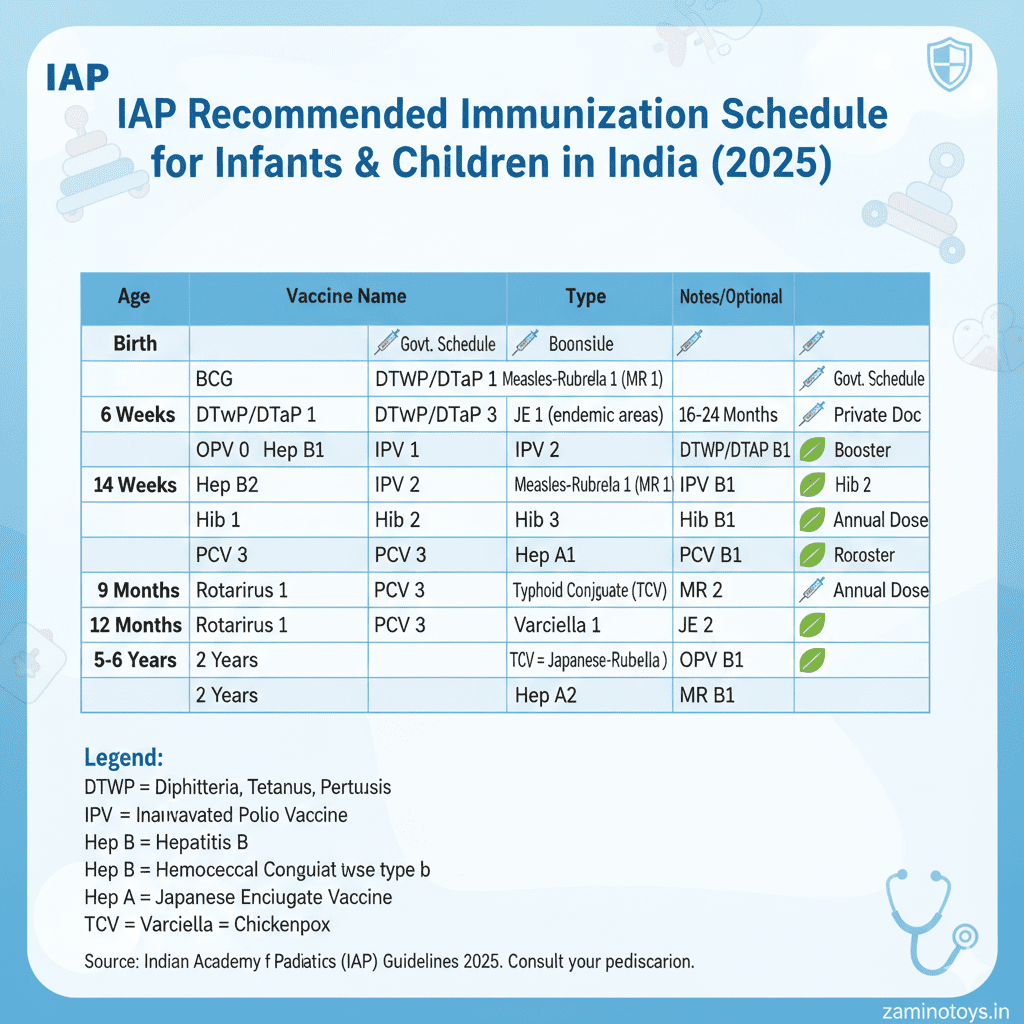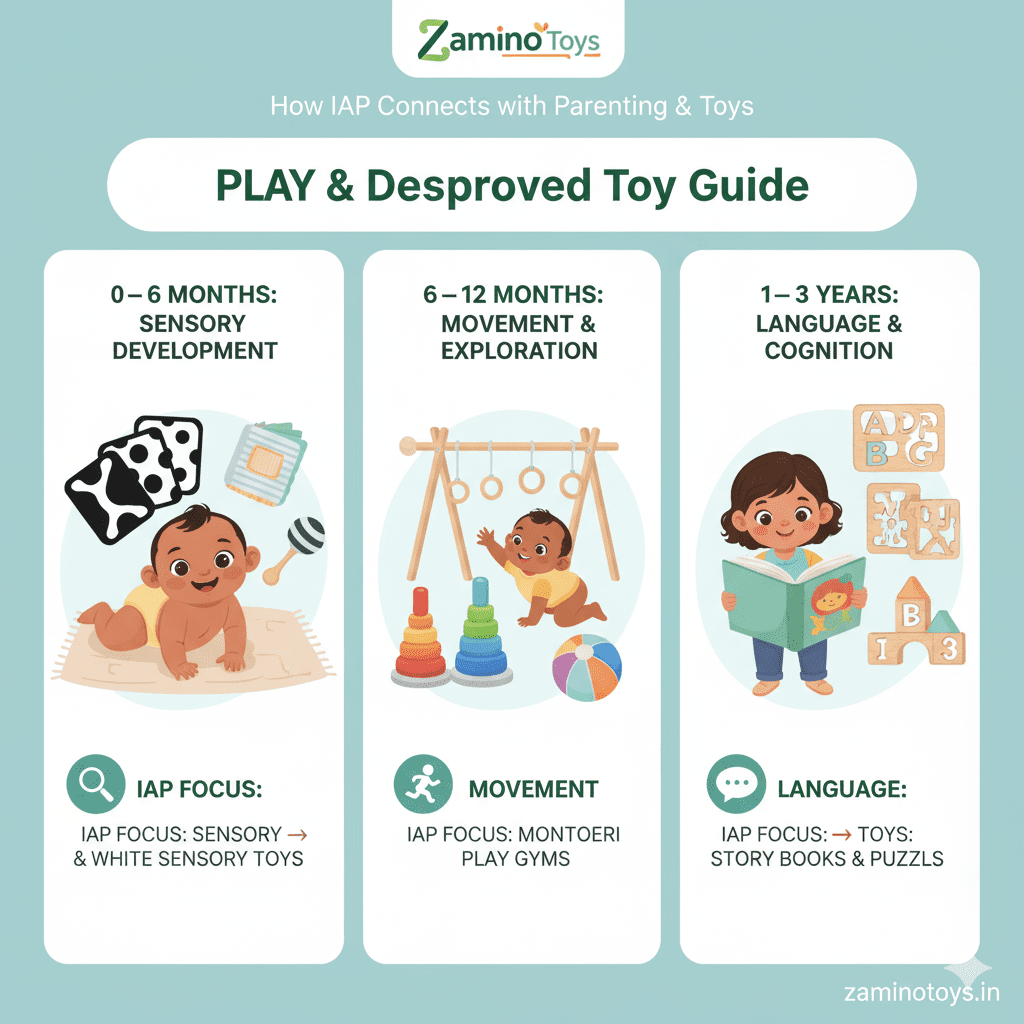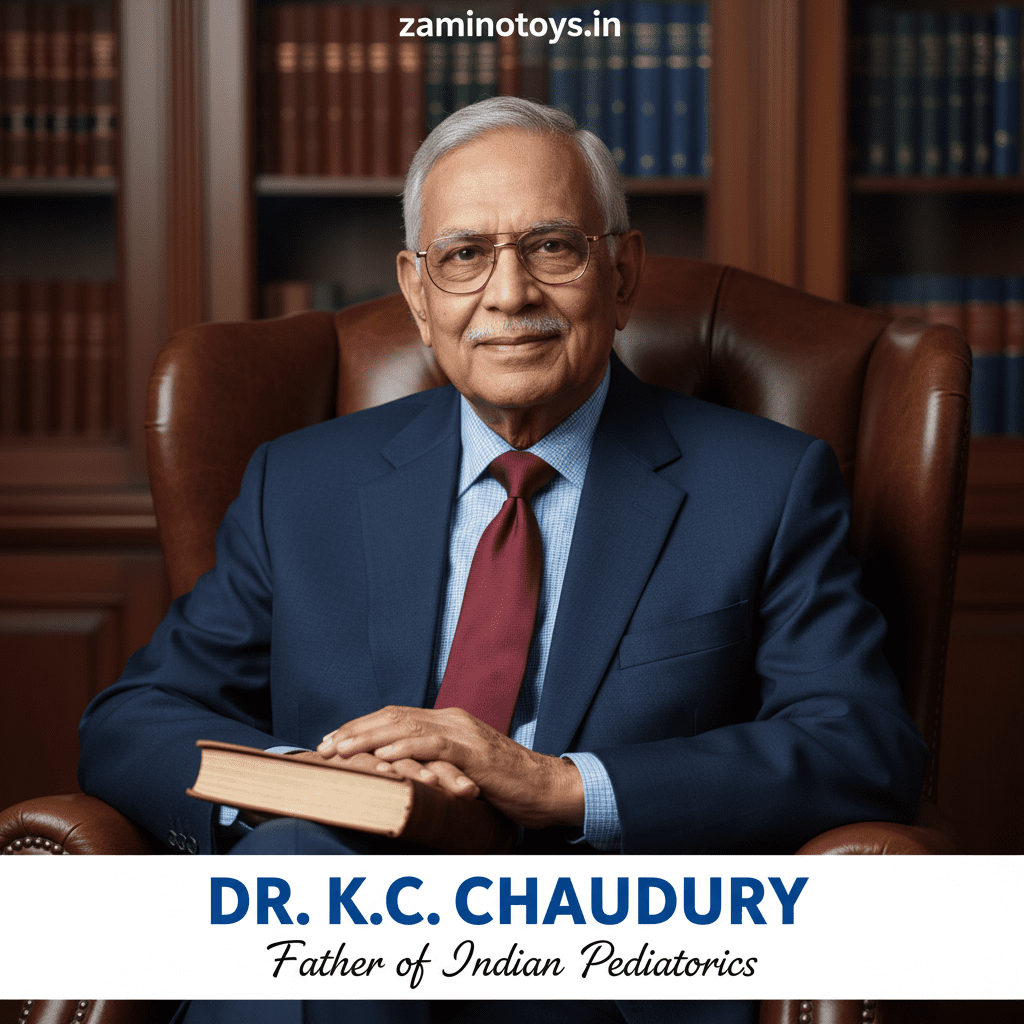Dr. K.C. Chaudhury – Father of Indian Pediatrics
When we talk about children’s health in India, one name stands above all – Dr. K.C. Chaudhury, lovingly remembered as the Father of Indian Pediatrics. At a time when India was still developing its healthcare system, Dr. Chaudhury worked with passion and vision to make pediatrics – the science of child healthcare – a respected medical field.
He believed children were not “small adults” but unique human beings with special needs, deserving specialized care. His research, teaching, and guidance laid the foundation for the Indian Academy of Pediatrics (IAP), formed in 1963.
Today, his dream lives on. The IAP is one of the largest professional bodies of doctors in India, helping not just doctors but also parents like you and me to understand what’s best for our children.
✨ His contribution reminds us: “Good health for children means a healthier future for India.”
What is the Indian Academy of Pediatrics (IAP)?
The Indian Academy of Pediatrics (IAP) is a professional organization for child specialists in India. With more than 40,000 members, including pediatricians, neonatologists, and healthcare workers, IAP is the voice of child health in India.
Key Roles of IAP:
- Vaccination schedules – Creating official immunization charts for children in India.
- Nutrition guidelines – Advising parents and doctors on healthy diets.
- Parenting advice – Sharing knowledge on screen time, sleep, and mental wellbeing.
- Child safety campaigns – From road safety to digital safety, IAP runs awareness drives.
- Doctor training – Updating pediatricians with the latest research.
📌Visit the official website IAP India.
📌 Read our ZaminoToys blog on the Baby Vaccination Chart in India 2025 for updated IAP schedules.
Why Parents Should Care About IAP
As parents, we are often overloaded with information – advice from relatives, Google searches, or WhatsApp forwards. While some of it is helpful, a lot is confusing and even unsafe.
That’s where IAP guidelines come in. Every recommendation is backed by science and research, making it a trustworthy source for parenting decisions.
Examples of how IAP impacts your daily parenting:
- Choosing the right vaccines at the right time.
- Understanding age-wise food introduction (when to start solids, what to avoid).
- Learning safe practices like sleep positions for newborns.
- Setting limits for screen time and gadgets.
By following IAP, parents in India can reduce risks and give children the best chance for healthy growth.
IAP and Vaccination in India
One of IAP’s most valuable contributions is the IAP Immunization Schedule. This schedule is updated regularly and helps parents know which vaccine should be given at what age.

💡 Did you know? The IAP chart is different from the government schedule. The government provides free vaccines under the Universal Immunization Program (UIP), but IAP also includes optional vaccines that protect against diseases like influenza, typhoid, and rotavirus.
👉 Example:
- At 6 weeks: DTP, Polio, Hepatitis B, Hib, and Rotavirus.
- At 9 months: Measles-Rubella (MR) and optional Influenza vaccine.
- At 12–15 months: MMR, Varicella, and Hepatitis A.
📌 Connect with our Baby Vaccination Blog for detailed tables.
📌 Check UNICEF India’s immunization programs at UNICEF India.
IAP and Child Nutrition
Nutrition is the base of health. IAP has guidelines on exclusive breastfeeding for 6 months, introduction of complementary foods, and what balanced meals should look like for Indian children.
IAP Key Nutrition Advice:
- 0–6 months: Breastmilk only, no water or other foods.
- 6–12 months: Soft home-made foods like mashed rice, dal, fruits.
- 1–5 years: Balanced diet with grains, pulses, vegetables, dairy, and limited sugar.
📌 Connect to our Age-Wise Toy Guide where we explain how toys also support nutrition-linked development.
IAP Parenting Advice: Beyond Medicine
The Indian Academy of Pediatrics goes beyond vaccines and food. It also guides parents on modern parenting challenges.
- Screen Time: Under 2 years → No screen. 2–5 years → Max 1 hour/day.
- Mental Health: Encouraging play, emotional bonding, and open talk.
- Child Safety: Car seats, helmets, road safety, avoiding choking hazards.
- Sleep: Safe sleep position (on the back), no pillows for infants, regular bedtime routines.
📌 WHO’s guide on child health – WHO Child Health.
How IAP Connects with Parenting & Toys

At ZaminoToys, we always link play with development. Toys are not just for fun – they are tools for growth. Interestingly, IAP’s advice aligns with toy choices:
- For 0–6 months: IAP stresses sensory development → Use black & white sensory toys.
- For 6–12 months: IAP highlights movement → Try Montessori play gyms.
- For 1–3 years: IAP focuses on language → Toys like story books and puzzles.
📌 Read More:
FAQ: Parents & Indian Academy of Pediatrics (IAP)
Q1. Who is known as the father of Indian pediatrics?
Dr. K.C. Chaudhuri is widely recognized as the father of Indian pediatrics. His pioneering work laid the foundation for modern child healthcare in India, particularly in pediatric education, clinical practice, and child-focused medical research. His contributions continue to influence pediatric standards and child health policies followed across the country today.
Q2. What is the role of the Indian Academy of Pediatrics (IAP) in child health?
The Indian Academy of Pediatrics (IAP) plays a vital role in improving child health in India by developing evidence-based guidelines related to immunization, nutrition, growth monitoring, and child safety. IAP regularly updates vaccination schedules, publishes clinical recommendations for pediatricians, and supports national child health initiatives aimed at disease prevention and overall well-being.
Q3. Where can parents find the Indian Academy of Pediatrics (IAP) vaccination schedule?
Parents can access the Indian Academy of Pediatrics (IAP) vaccination schedule through the official IAP India website and reliable parenting or child health platforms that reference IAP guidelines, such as ZaminoToys. Since vaccination recommendations may evolve, parents should always check the latest updates and consult their pediatrician before making healthcare decisions.
Q4. How does the Indian Academy of Pediatrics (IAP) help parents directly?
Although the Indian Academy of Pediatrics (IAP) is a professional medical body, it directly supports parents by sharing easy-to-understand, science-backed guidance on child health. This includes information on vaccinations, nutrition, safety, developmental milestones, and common childhood concerns, helping parents make informed and confident decisions.
Q5. Is the Indian Academy of Pediatrics (IAP) only meant for doctors?
No. While the Indian Academy of Pediatrics (IAP) primarily serves pediatricians, its guidelines and recommendations are designed to benefit both healthcare professionals and parents. Pediatricians use IAP guidance to ensure standardized, evidence-based care, while parents benefit through improved medical advice and better awareness of child health practices.
Note
This content is based on publicly available information and widely accepted pediatric healthcare principles in India. For individual medical concerns, parents are advised to consult a qualified pediatrician, as each child’s health needs may differ.
Final Thoughts
The Indian Academy of Pediatrics (IAP) is more than just an organization for doctors – it is a guardian of child health in India. Thanks to leaders like Dr. K.C. Chaudhury, pediatrics became a respected field, and millions of children now receive better care.
At ZaminoToys, we believe in bridging the gap between science and parenting. By combining IAP guidelines with toys, play, and daily care, you can raise children who are healthy, happy, and confident.
✨ Bookmark this blog, share with other parents, and explore our toy guides for more child development tips.

